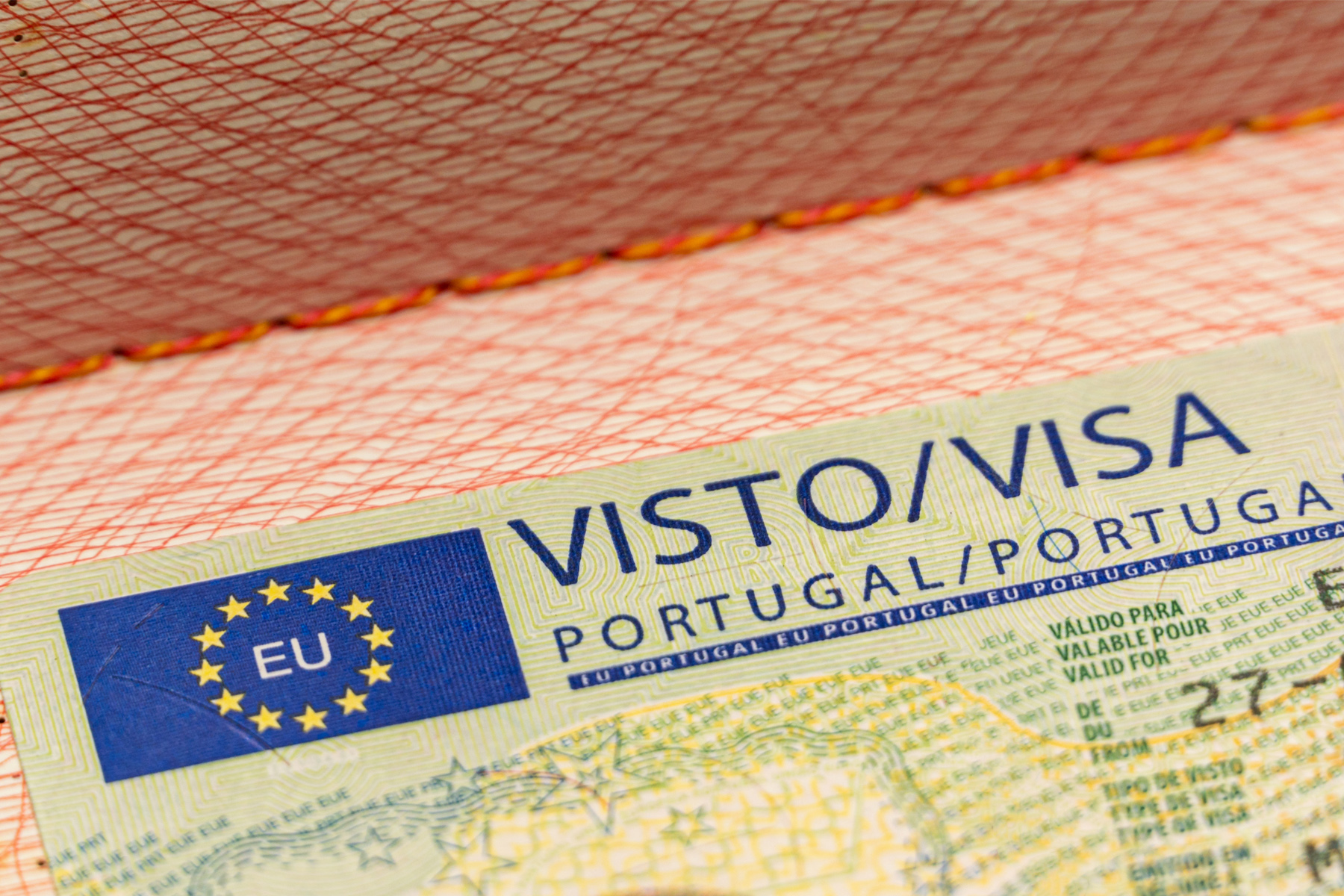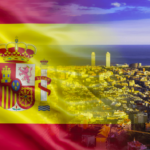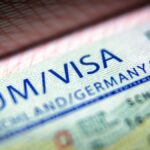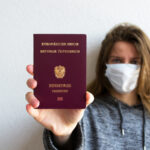Portugal, located on the western edge of Europe, stands as one of the oldest and most developed nations on the continent. With a population of approximately 10,291,027 and an area spanning 92,212 km², Portugal boasts a rich history, stunning architecture, and high living standards.
This nation is a member of prestigious international organizations, including the United Nations, the European Union, NATO, and the Schengen Zone. Since its accession to the Schengen Zone in 1995, Portugal has abolished its internal borders, allowing travelers to apply for a Portuguese Schengen Visa, which grants access to Portugal and the entire Schengen Area.
Fun fact: Portugal is home to the world’s oldest bookshop!
Portugal Entry Restrictions in Response to Coronavirus
During the COVID-19 pandemic, Italy and other EU/Schengen Area countries introduced a temporary ban on entry for third-country nationals, based on the EU Commission’s recommendation. Entry restrictions to Portugal are subject to change due to the evolving COVID-19 situation. For the latest updates on travel and entry restrictions, please refer to “A Complete Guide to Traveling to Portugal Amid COVID-19” provided by Italian authorities.
Who Needs a Schengen Visa to Enter Portugal?
To enter Portugal, or any Schengen member country, a Schengen visa is typically required if you fall into one of the following categories:
- You are a citizen of a non-Schengen country and are obligated to obtain a Schengen visa to enter any Schengen member state.
- You come from a non-Schengen country that has a visa liberalization agreement with Schengen states, but you have previously been denied entry into Portugal or any other Schengen country.
What Documents Are Required for a Portugal Schengen Visa Application?
The Portuguese visa application process mandates specific documents to be submitted to the Portugal embassy/consulate in your country of residence:
- Portuguese visa application form: Complete the application form, print it, and sign it.
- Two passport photos: Ensure that these photos meet the Portuguese Schengen visa application photo requirements.
- Your valid passport: It should have at least two blank pages and not be older than 10 years, with a validity of at least three months beyond your planned departure date from Portugal and the Schengen Area.
- Copies of your previous visas: Include copies of any visas issued by other countries.
- Round-trip Flight Itinerary: Provide documentation of your booked flights to and from Portugal, indicating flight numbers, dates, and personal details.
- Proof of accommodation: Include a hotel reservation in Portugal.
- Proof of sufficient financial means: Demonstrate your ability to cover expenses during your stay.
- A cover letter: Write a personal letter explaining your purpose of visiting Portugal, the duration of your stay, and other relevant details.
- Proof of civil status: Provide documents like a marriage certificate, children’s birth certificate, or spouse’s death certificate.
- Portugal Travel Health Insurance: Confirm that you have travel insurance for Portugal and the entire Schengen Area with a minimum coverage of €30,000 for medical emergencies. You can purchase suitable travel insurance online from companies like Europ Assistance or MondialCare, as their policies are widely accepted by Portuguese authorities.
Additional Portuguese Visa Requirements Based on Your Employment Status
Portuguese embassy/consulate guidelines specify additional documents based on your employment status:
If employed:
- Employment contract
- Current bank statement for the last 6 months
- Leave permission from your employer
- Income Tax Return (ITR) form
If self-employed:
- A copy of your business license
- Company bank statement for the last 6 months
- Income Tax Return (ITR)
If retired:
- Pension statement for the last 6 months
If a student:
- Proof of enrollment
- No-objection certificate from your school or university
If applicable:
- Proof of regular income generated by a property for the last 6 months
Additional Portuguese Visa Requirements for Minors
Minors applying for a short-stay visa to Portugal, or parents applying on behalf of a minor child, must include the following additional documents in their application:
- Birth certificate of the minor traveling to Portugal.
- Portugal application form signed by both parents.
- Family court order in cases where only one parent has full custody of the child.
- Certified copies of ID/passport of both parents.
If the minor is traveling with another person:
- Original and copy of the accompanying person’s passport.
- A notarized parental authorization to travel to Portugal, signed by both parents or guardians.
Please note that when applying in your home country, the guardian or parent should accompany their underage children.
Additional Requirements Based on the Purpose of Entry to Portugal
The nature of your intended trip to Portugal determines the documents required to prove your eligibility for entry. The following are additional requirements based on your travel purpose:
Portugal Airport Transit Visa Requirements
If your flight transits through a Portuguese airport but your final destination is a non-EU/EEA country, you may require a Portugal Airport Transit Visa. The need for this visa depends on your nationality, so check if you are on the list of countries that need it.
Required documents for a Portugal Airport Transit Schengen Visa include a valid visa for your final destination and your flight ticket to that country.
Portugal Transit Visa Requirements
If you are a seafarer who needs to disembark at a Portuguese harbor before embarking on another vessel to a non-Schengen destination, or if you are a seafarer traveling to Portugal, you may require a Portugal Transit Visa.
Additional documents needed for a Transit Schengen Visa to Portugal include a valid visa for your final destination, your ticket to that country, your Seaman’s book (for seafarers), a letter from the inviting Shipping Company (for seafarers), and your employment contract (for seafarers).
Portugal Business Visa Requirements
A Portuguese Schengen Business Visa is necessary if your trip’s sole purpose is to engage in business activities, such as meetings and contract signing.
Additional documents required for a Business Schengen Visa to Portugal include a letter of invitation or a statement of participation from the Portuguese organization or company, confirmation of registration for trade fairs or congress, a letter from your employer explaining the purpose of your travel, and proof of trip financing.
Portugal Study Visa Requirements
A Portuguese Study Visa is needed for those wishing to attend a study course, internship, or training lasting 90 days or less within a six-month period in Portugal.
Additional documents required for a Student Schengen Visa to Portugal include a no-objection letter from your educational institution (if applicable) and an internship agreement signed by the company in Portugal, the originating institution, and the trainee.
Portugal Medical Visa Requirements
For medical treatment, surgery, or health therapies in Portugal, a Portugal Medical Visa is necessary. Additional documents required for a Medical Schengen Visa to Portugal include a local medical report from a doctor, clinic, or hospital in your home country, a medical attestation from a Portuguese hospital or doctor confirming your appointment, your medical condition, and the hospital’s ability to provide treatment, as well as proof of financial arrangements.
Portugal Visa for Cultural/Sports/Film Crew/Religious Purposes Requirements
If you intend to participate in or attend cultural, sports, or religious events or if you are part of a film crew in Portugal, you need a Cultural/Sports/Religious Events Visa.
Additional documents required for a Schengen Visa to Portugal for Cultural, Sports, Film Crew, or Religious Purposes include an invitation letter from the relevant body in Portugal, entry tickets, enrollment conditions, a detailed program of the event, and documents confirming previous performances or participation.
Portugal Visa for Spouse of Portuguese National Requirements
If you are the spouse of a Portuguese national and wish to travel to Portugal, you must apply for a Portugal Visa for the Spouse of a Portuguese Citizen. Additional documents required for a Portuguese Schengen Visa for the Wife/Husband of a Portuguese Citizen include proof of Portuguese citizenship, a Portuguese marriage certificate, and a Portuguese family record book.
Portugal Official Visit Visa Requirements
Members of official delegations invited to participate in meetings, consultations, negotiations, exchange programs, or specific events in Portugal require a Portugal Visa for Official Visit.
Additional documents required for a Portuguese Schengen Visa for Members of Official Delegations include a copy of the official invitation, evidence of the trip’s purpose, and details about the event or affiliation.
How to Apply for a Portuguese Short-Stay Visa?
To successfully apply for a short-stay visa to Portugal, follow these steps:
- Determine the specific type of Portuguese visa you need.
- Identify the location where you should submit your Portugal visa application, which could be the Portuguese Embassy, a Portuguese consulate, a Visa Application Center, or the embassy or consulate of another Schengen country handling visa submissions for Portugal.
- Fill in the application form with accurate information.
- Gather the required documents as per the criteria outlined by the Portuguese embassy/consulate in your home country. Ensure that each document meets the specified requirements.
- Schedule a visa interview, either online or in person at the designated embassy/consulate.
- Attend the interview on the appointed day.
Where to Apply for a Portuguese Short-Stay Visa?
The location for visa submission depends on the regulations set by Portuguese authorities in your country of residence. You may need to apply at one of the following locations:
- The Portuguese Embassy
- A Portuguese consulate
- A Visa Application Center authorized by Portugal for visa submissions
- The embassy or consulate of another Schengen country, if Portugal has outsourced visa submissions to them
Who Can Apply for a Schengen Visa at the Portuguese Embassy/Consulate/VAC?
You are eligible to submit your short-stay visa application at a Portuguese Embassy, Consulate, or Visa Application Center if one of the following statements is applicable:
- You intend to visit Portugal without traveling to any other Schengen country.
- Portugal is your main destination, meaning you will spend more time in Portugal than in other Schengen countries. Alternatively, you will enter the Schengen Zone through Portugal.
You can apply for a Portugal short-stay visa at a Portuguese Embassy, Consulate, or VAC only if you are one of the following:
- A citizen of the country from where you are applying.
- A foreign citizen holding a permanent or temporary residence permit in the country from which you are applying.
You cannot apply for a short-stay Portuguese visa from a country where you currently hold a visa.
How Long Does It Take to Get a Portuguese Visa?
The processing time for a Portugal short-stay visa is typically a minimum of two weeks, with the possibility of extending it up to 30 days depending on your specific circumstances. In exceptional cases, processing times may be extended to 60 days when Portuguese embassies need to consult with other Schengen consulates.
For nationals of specific countries, the processing time takes at least three weeks. These countries include Afghanistan, Algeria, Bangladesh, Belarus, Cameroon, Central African Republic, Chad, DR Congo, Egypt, Iran, Iraq, Jordan, Kenya, Lebanon, Libya, Mali, Mauritania, Morocco, Niger, Nigeria, North Korea, Pakistan, Russian Federation, Rwanda, Saudi Arabia, Somalia, South Sudan, Sri Lanka, Sudan, Syria, Tunisia, Uzbekistan, Vietnam, and Yemen.
To avoid delays in obtaining your Portuguese short-stay visa, apply as soon as possible, but no earlier than three months before your intended travel to Portugal.
How Much Does It Cost to Apply for a Portuguese Visa?
The Portuguese Schengen Visa fees are as follows:
- Adult: €80 (approximately $96 in USD)
- Children between 6-12 years of age: €40 (approximately $48 in USD)
- Children younger than 6 years of age: Free
- Holders of diplomatic, official, or service passports traveling for official purposes: Free
- Family members of an EU/EEA national: Free
- Pupils, students, and accompanying teachers during a school trip: Free
- Researchers traveling to perform scientific research: Free
- Nationals from Armenia, Azerbaijan, and Russia: €35 (approximately $42 in USD)
Please note that the USD visa fee is subject to change based on the current exchange rate, and it may be altered without prior notice. The visa fee is non-refundable; in the event of application withdrawal or rejection, the fee will not be reimbursed.
How Long Can We Stay in Portugal Without a Visa?
For nationals of countries that have not signed visa-free agreements with Portugal and other Schengen members, obtaining a visa is required to visit Portugal and other Schengen countries. However, European Union (EU) nationals can enter Portugal and remain in the country for an indefinite period without needing a visa. If you wish to stay longer than three months, you must register with local Portuguese authorities. For nationals of visa-exempt countries, you are allowed to stay in Portugal for up to 90 days within a 180-day period. If you plan to stay longer, the actions you need to take depend on your country of residence:
- Australia, Israel, Japan, Canada, New Zealand, Republic of South Korea, or the United States of America: You must obtain a residence permit within three months of your arrival in Portugal.
- Other visa-exempt countries for Portugal: You must obtain a Portuguese National visa for long stays from your country of residence if you intend to stay beyond the initial 90-day period.
Can I Extend My Schengen Visa in Portugal?
Extensions for your Portuguese Schengen visa are possible, but only under exceptional circumstances. Extensions can be granted when new facts or special reasons arise after your entry into Portugal, such as humanitarian reasons or force majeure. The Aliens and Borders Service (SFF) and the Borders and Aliens Service (SEF) are the entities responsible for handling visa extensions.
Can My Portuguese Schengen Visa Be Revoked?
Yes, your Portugal visa can be revoked if Portuguese authorities determine that the conditions for issuing the visa are no longer met. If you are in Portugal at the time of the visa revocation decision, you will be given a deadline to leave the country. Failing to leave Portugal or the Schengen Area within this period will result in your classification as an illegal resident in Portugal.
How Long Can We Stay in Portugal Without a Visa?
For nationals of countries that have not signed a visa-free agreement with Portugal and other Schengen members, a visa is required. EU nationals can enter and remain in Portugal indefinitely without a visa, but if they plan to stay for more than three months, they must register with Portuguese local authorities. Visa-exempt nationals can stay for up to 90 days within a 180-day period. To stay longer, they may need to obtain a residence permit or a Portuguese National visa, depending on their home country.
What is the Visa Rejection Rate in Portugal?
The overall visa refusal rate for Portugal is approximately 30%. This means that out of every 100 visa applications received, around 30% of applications are rejected. It’s important to note that visa refusal rates can vary depending on the type of visa and the individual circumstances of the applicants. Therefore, some visa categories may have higher or lower refusal rates. Applicants should ensure that they meet all the necessary requirements and provide all required documentation to improve their chances of a successful visa application.
Is IELTS Required for Portugal?
Many universities in Portugal do not require IELTS for admission, especially if the applicant’s previous education was completed in English. However, admission requirements can vary between universities and specific programs, so it’s essential to check with the university you’re interested in to confirm their specific language proficiency requirements. While IELTS may not be mandatory for admission at some institutions, having English language proficiency can still be beneficial for your studies and daily life in Portugal.
Is Portuguese Visa Strong?
The Portuguese passport is indeed considered strong and desirable for international travel. With visa-free entry or visa-on-arrival access to 187 countries and territories, it offers its holders the freedom to travel to a wide range of destinations with ease. This high number of visa-free and visa-on-arrival countries places the Portuguese passport among the top-ranking passports globally, making it a valuable asset for its holders who wish to explore the world or conduct international business and travel.
Conclusion
Obtaining a Portuguese Schengen Visa involves meticulous planning and the submission of specific documents based on your travel purpose and personal circumstances. While the process can be complex, complying with the requirements and adhering to visa policies will help ensure a smooth and successful visa application. Be sure to stay updated with the latest entry restrictions and requirements, especially in light of the ongoing COVID-19 pandemic, to facilitate a hassle-free visit to this historic and beautiful country.





















